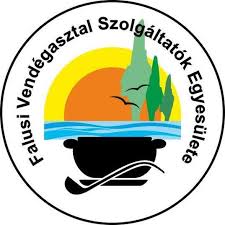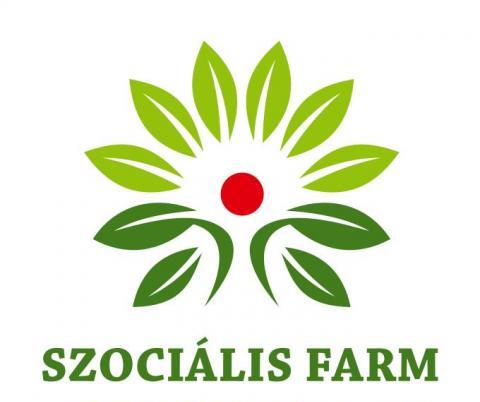
February 17, 2016
Thank you the quick and lifellike answer from National Food Chain Safety Office (https://www.nebih.gov.hu/en/).
What happened?
As small-scale farmers are applying to the registry of household farmers and to obtain household farmers’ identification card we just keep receiving several cries for help.
Even the helpful village agronomists (those who are settled in rural settlements on behalf of the Hungarian Chamber of Agricultural) refuse to list cakes and bakery products into the attachment of the household farmers’ identification card, which is the list of products a household farmer may produce and sell with a personal income tax-benefit.
Their argument:
▪Not allowed. (OUR comment: this is not true, since according to personal income tax regulation cakes or bakery products may be registered under “other product” or “processed product” and even selling cakes and bakery products are listed within the permitted activities of the personal income tax provisions.)
▪Only allowed if one has wheat and certifies the agreement for grinding with mill (OUR question: why an agreement should be presented at the time of registration, why it is not enough to keep at site? Why one should have WHEAT if, just taking the example, potato pogacha where 50 % is out of potato, and used additional even his/her OWN EGG? One may prepare blood sausage (similar to back pudding) even without producing rice, since this is allowed to be listed among the list of products.)
We have further question: why in registration it is requested to have a certified livestock breeding site. This is requested from a farmer who just have 5-10 hens. Why the veterinarian certification is not enough?
We contacted the National Food Chain Safety Office with these questions and received the following answers from its customer service.
Small producers are registered by the food chain safety and animal health department of the district offices according to paragraph 5 (3) of Agricultural and Rural Development Minister Decree of 52/2010(IV.30.) and not the village agronomists.
The production of bakery cakes and products may be classified, according to my reading, to “other products” which is set out is section A of annex 1 of the Agricultural and Rural Development Minister Decree of 52/2010(IV.30.)
Section B of annex 1, which lists activities a small producer may conduct, where preparing meal are connected to farmhouse catering and festival, where pogacha is used as an example.
Using own wheat is possible where grinding in mill is part of the preparation which is allowed according to paragraph 1 (2) of Agricultural and Rural Development Minister Decree of 52/2010(IV.30.) provided food hygiene tracking is guaranteed.
Agricultural and Rural Development Minister Decree of 52/2010(IV.30.) does not determine ratio in using own raw materials when preparing food as small producer. According to the wording of the decree only such raw material may be used which is produced by the small producer (the only exemption is in the case of farmhouse catering, where supplementary raw material may be purchased from anyone and finished product from small producers ).However, since it is not lifelike in certain raw material that small producer would produce, in practice we allow certain deviation from this regulation.
Small producer needs an official veterinarian certification not older than one year as to sell eggs being an animal origin product as well as to comply with rules keeping laying hens specially those of epidemic control rules so these sites must be registered.
The Poultry Information System keeps registry on transportation, incubation and stock of all living animals of poultry type and eggs which is governed by Rural Development Ministry Decree No 120/2007(X.18.). The scope of the Decree is based on Rural Development Ministry Decree No. 119/2007(X.18.) on the content of the Poultry Information System which applies to all keepers of household hens, turkey, duck, goose, guinea fowl, ostrich, emeu.
Sincerely yours,
National Food Chain Safety Office
COMMENNTS:
If rural economists does not register all products a household farmers dealing with in the household farmer identification card then National Tax Authority will punish the farmer selling products not in the farmer identification card.
EXPLANATION:
Some examples to the direct selling of cakes and bakery products:
Bread and pogacha: mainly made out of flour (wheat, corn, etc.) and/or potato. If small producer produces at least of one the main ingredients he/she must register not only the primary product (raw material) but the processed (final) product in the obtaining the registry card.
Fruity or oily seed pies, strudel: these fillings of the cakes are mostly produced by the small producer, so it is a local practice of the authority allowing the sale of these cakes if a small producers would not produce wheats (or similar).
Fruit pies, strudels, Fruity or oily seed pies: if the filling of the pie and the egg are produces by the small producer then poultry must be registered and the stock has to be annually examined by the veterinarian.
Cake with cottage cheese or milk product: at least one main ingredient has to be produced by the small producer. In the case of egg produced by the small producer the above respond from the National Food Chain Safety Office has to be applied. One must have the annual certification of the veterinarian and the milk germ calculation certificate as well as the feeding and veterinary diary if using milk from the farm of the small producer.
Cake and bakery product made out of fat from self-production: fat as a product has to be registered. If the fat is out of milk then the above veterinary rules apply, if the fat is out of pork or other animal this may only be used if the animal is slaughtered at slaughterhouse, slaughter point.
In the case of farmhouse catering one may, in any case, purchase raw material, however household farmers must register warm and cold catering with farmhouse catering service according to annex 6 point III/C. of the Personal Income Tax Act.















